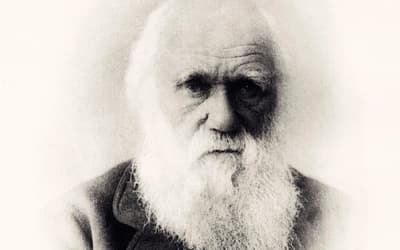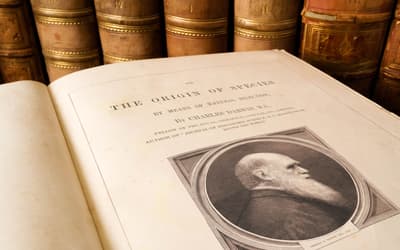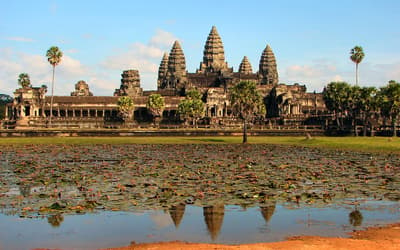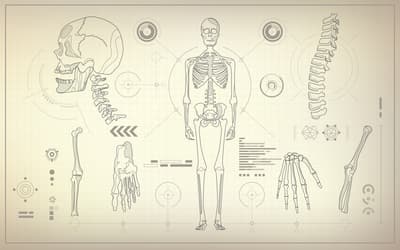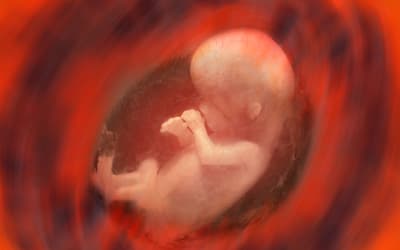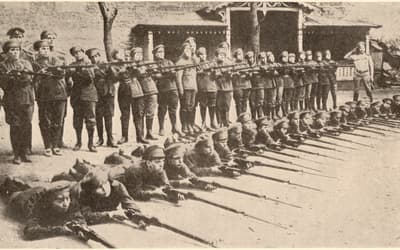The views expressed in this paper are those of the writer(s) and are not necessarily those of the ARJ Editor or Answers in Genesis.
Abstract
Darwinism was a major influence on those persons who birthed, inspired, and supported the Vietnam War. This includes Karl Marx, Vladimir Lenin, Joseph Stalin, and Ho Chi Minh. Charles Darwin’s (1809–1882) ideas helped to guide these leaders to Social Darwinism, which was an underpinning of the Communist and the National Socialist (Nazi) ideologies. Darwinism also played a central role in contributing to the conditions that eventually led to the American involvement in the Vietnam War, including the Communist Movement. The decade-long war, from 1965 to 1975, cost as much as three million lives during the time the U.S. was involved.
Keywords: Charles Darwin, Communism, Social Darwinism, Vietnam War, Karl Marx, Vladimir Lenin, Joseph Stalin, Ho Chi Minh
Introduction
Darwinism, especially Social Darwinism, played a central role in contributing to the conditions leading to the communist domination of North Vietnam. Social Darwinism is the belief in the importance of the “survival of the fittest”—the idea that certain people are innately better than other people. Marxism, the political and economic theories of Karl Marx and Friedrich Engels, was developed by their followers to form the basis for the theory and practice of communism. Darwinism is a biological theory of the origin of different life-forms through the natural selection of life forms better able to survive their environment. In contrast, Social Darwinism, is a consequence and progression of Darwin’s theory best summarized as “survival of the fittest.” Social Darwinism is an underpinning of communism and National Socialist (Nazi) ideology.
For the decade that the U.S. was involved in the Vietnam War, the total deaths for all sides ranged from approximately 1 to 3 million (Hirshman, Preston, and Loi 1995, 783). Although Social Darwinism was part of the reason for Vietnamese discrimination against minorities, in the end, its major influence was giving birth to communism. This was due to Darwinism opening the door to Marxism and Leninism in Vietnam as well as the poor decisions made by French and American leaders. The main stated justification for the Vietnam War was to stop the growth of communism and support a non-communist democracy.
The Vietnam War and Darwinism
The Vietnam War was an important conflict for Americans for several reasons. It was fought by America due to the U.S. policy of containment adopted in the early post-World War II era to stem the growth of communism (Bergman 2019). The Johnson administration was following this policy when President Lyndon B. Johnson decided to escalate the Vietnam War in February of 1965. The Vietnam War was also the first televised war to nightly come into American living rooms. It was also the only conflict until that time that ended in defeat for America. The defeat was political and not of a military nature because the last maneuver’s battalions had left over two years before the Republic of Vietnam fell to North Vietnam.
The war was also important because hundreds of thousands of Laotians and Cambodians, plus 55,000 French lives, and over 58,000 American lives were lost in the three decades of fighting following World War II (Bergman 2021). The war’s loss by America produced a condition which some historians believe was similar to what would have developed in 1945 under a unified communist Vietnamese state. Nevertheless, a unified communist Vietnam in 1945 would not have had the international baggage that the new regime experienced in 1975, indebted as it was to Chinese and Soviet assistance over 30 years of fighting.
Karl Marx: From Christian to Atheist
As a juvenile, Karl Marx (1818–1883), although “not deeply indoctrinated, was nevertheless a serious, even a passionate Christian” (McKown 1975, 15). The foundation of the communist Vietnam War was Marx’s conversion from a professed Christian as a youth to an aggressive opposer of all forms of theism not long after he was exposed to German philosopher Georg Wilhelm Friedrich Hegel (1770–1831) when he was a student at the University of Berlin (Kengor 2020, 12). Hegel deeply impacted Marx’s thinking about Christianity and religion in general.
Darwinism arose from the Enlightenment as the Church became a stale institution surrendering much of its power to secular science and natural laws which replaced God’s sovereign will. In the post-colonial world, the secular economic philosophies of capitalism and communism competed in Europe to fill a void after World War I and World War II strained continental imperialism.
Marx’s acceptance of communism due to the influence of Engels, Darwin, and especially secularism was also an important factor in causing the Vietnam-American War (Bergman 2021). As early as the 1930s, Marxist-Leninist thought “became the driving force in Vietnamese anticolonialism” (Bradley 2000, 11). Furthermore, the “appeal of Marxism derived in no small part from its perceived parallelism with Social Darwinism. Both Marxism and Social Darwinism laid claim to scientific truth. Both combined elements of determinism and voluntarism.” (Tai 1992, 261). The revolutionary ideas that resulted from the infusion of Western thought among Vietnamese intelligentsia at the turn of the nineteenth to the twentieth centuries included a new understanding of culture and society. Marxism and Darwinism accompanied these new realizations.
Darwinism’s Important Role in Vietnam
The Confucian concept of the “Mandate of Heaven” demanded that the public follow the ruler that was most fit to lead. Confucian peace philosophy was important to the underlying Vietnamese culture because it provided for an orderly society at odds with Marxism’s Spencerian Social Darwinism. Spencerian refers to Herbert Spencer (1820–1903), the man who developed the Darwinian ideas which produced Social Darwinism’s survival of the fittest “nature red in tooth and claw” worldview. Herbert Spencer, “the archetypal Social Darwinist . . . [also used] environmental inheritance to explain the social and cultural origins of racial difference” which, in turn, influenced the Vietnamese view of race (Bradley 2000, 52).
The revolution against this Confucian peace philosophy began as early as 1904 with the publication of a tract titled The Civilization of New Learning. This tract was “infused with the Social Darwinian themes that had characterized [and was reflected in] the writings of Chinese reformers.” It offered a “wide-ranging critique of Vietnamese society and a prescription for the future . . . using Spencerian rhetoric, [and the Communist Manifesto argued] for the importance of Darwinian intellectual competition” (Bradley 2000, 13).
The reform movements existing in French Indochina at this time were responding to external influences, including the need for industrialization and modernization (Vu 2012). The French administration resisted, as did the Catholic Church and native religions, for several reasons including the perception that the reform ideas threatened their power and authority. The development of their educational system involving minority populations, such as the Muong, Hmong, Khmer Krom, Hoa, and Nung, created internal conflicts within Vietnam. It was in this environment that the “radical elites in Vietnam, particularly in the Reform Movement’s embrace of Social Darwinism” became a critical element in leading to the Vietnam-American War (Bradley 2000, 71).
The Influence of China
Although Charles Darwin never visited China, his ideas were spread there and radically changed the country. Darwinism was the first great Western theory to make an impact on the Chinese and, from 1895 until at least 1921, (when Marxism gained a formal foothold), it was the dominant Western “ism” influencing Chinese politics and thought. The authority of Darwin influenced both reformers and revolutionaries and paved the way for Chinese Marxism and the thought of Mao Tse-tung (Mao Zedong).
Communism Spread into Vietnam from China
Darwin’s evolutionary theories laid the groundwork for radical thought and Social Darwinism in several Asian countries. Many of these Chinese Social Darwinism ideas came from Maoist radicals. The result was that Mao and other communists produced the Chinese Communist Revolution (1927–1949). Vietnamese radicals can also be traced directly back to the Chinese acceptance of both Darwin and Western secularism. The enormous harm of Darwinism and the fact that Darwin’s influence still adversely affects China and Vietnam today is well documented (Pusey 1983).
China had an enormous impact in Vietnam, especially due to “the strong influence of the . . . Chinese embrace of Social Darwinism and indigenous forces such as the enduring elitism of the Vietnamese reform generation” (Bradley 2000, 18). From the 1800s until recently, Vietnamese elites studied Chinese classical texts which included Social Darwinism and Marxist concepts in preparation for the examinations that would enable them to enter government service as Mandarins, (meaning virtuous, Confucian superior men). Chinese translations of other Western classics coming out of the self-strengthening movement introduced significant numbers of Vietnamese intellectuals to Western thought for the first time. A detailed Vietnamese study of Charles Darwin, published in 1944, was titled Đác-uyn (Darwin in English) (Marr 1992, 302). It was, among other writings, very influential in spreading Darwinism to Vietnamese intellectuals. In short, Darwinism’s survival-of-the-fittest ideology was one key factor in the events that led up to the Vietnam-American War (Tai 1992).
Among the most compelling Western thinkers for the reform movement was the Darwinist Herbert Spencer, whose Social Darwinism doctrine asserted that the principles of evolution, especially natural selection’s survival-of-the-fittest idea, applied to not only human societies, but also to social classes and individuals. Furthermore, “Social Darwinism offered a powerful explanation for the weaknesses in traditional society that had led to Vietnam’s domination by the French” (Bradley 2000, 12). It also pointed to the source of the success of Western strength that offered a potential path for Vietnam’s future.
The result was that the ideas of “Darwin and Herbert Spencer invigorated a new generation of activist scholars in Vietnam” (Jamieson 1993, 57). One of the important early “scholar-gentry patriots . . . who had embraced Social Darwinism and new currents of neo-Confucian thought” was Phan Chu Trinh (Bradley 2000, 11). The replacement of Confucian philosophy with Social Darwinism was central in influencing the events that led up to the Vietnam War because Confucian belief taught that a necessary condition to achieve happiness and a functional society is peace. To obtain peace, Confucius taught that human relations consisted of five factors based on love and duty. All war has to be abolished and world unity is a major goal for all Confucian believers (Phillips 2018).
The Social Darwinism survival-of-the-fittest ideology was a ready pseudo-science theory for communist radicals. In the minds of the reformers and the elite, it soon replaced the Confucian belief in the primacy that all people get along. Among the leading Vietnamese reformers, “although important differences divided them, both Phan Boi Chau and Phan Chu Trinh shared and advanced the Social Darwinist critique that informed the Reform Movement. . . . an essential rhetorical trope and [which] served as an idealized representation of the salutary benefits of Darwinian competition” (Bradley 2000, 16).
One other major Vietnamese leader, Pam Quynh, was also very influenced by Social Darwinism (Tai 1992, 48). The fact is “Social Darwinism provided much of the intellectual underpinnings of the faith in cultural hierarchies” (Bradley 2000, 52) but the Social Darwinism favored by the Vietnamese was theoretically more optimistic than that in the U.S. which, in contrast,
stressed the competitive struggle for the survival of the fittest among individuals, nations, and races and the relentless determinism of the forces of heredity impervious to the influences of the cultural or physical environment. But at the same time, many Americans also embraced a neo-Lamarckian doctrine that depicted human behavior as shaped by direct environmental influences or by hereditary traits influenced by the environment and passed from parent to children. (Bradley 2000, 52)
The American Revolution provided an example for Vietnamese Social Darwinists, inspiring them to prevail against the odds through perseverance and surmount the barriers of reform in Vietnam. In short, they endeavored to look past the “Western conceptions of Social Darwinism and formulate a voluntarist Darwinism prescription for social evolution” (Bradley 2000, 23).
Ho Chi Minh: Considered the Founder of the Modern Country of Vietnam
Marxist–Leninist Ho Chi Minh (1890–1969) was born in the village of Làng Chùa in Central Vietnam, which was then a French protectorate. The well-educated Ho came from a relatively prosperous middle-class family. His father was a Confucian scholar and teacher and later became an imperial magistrate in the district of Binh Khe. An event which may relate something about him as a father was his demotion for abuse of power after a local died several days after receiving 102 cane strokes as punishment for some minor infraction of the law (Duiker 2000).
Ho Chi Minh emerged as a voice for Vietnamese independence while living as a young man in France during World War I. During the six years that he spent in France (1917–1923), he became an active socialist under the name Nguyen Ai Quoc (“Nguyen the Patriot”). Inspired by the Bolshevik Revolution, he joined the Communist Party and frequently traveled to the Soviet Union. Later, in 1930, he helped found the Indochinese Communist Party. Ho Chi Minh—inspired by Chinese and Soviet communism—also formed the Viet Minh.
When arguing for political revolution, or at least in favor of a catalyst for change, Ho Chi Minh cited both Darwin and Marx as justification for his political revolution (Brocheux 2007, 34). Ho was the leader of the communist-led Viet Minh movement that sought independence from the Japanese and French during World War II (Isserman 2003, 13). He once lived in the United States, specifically Boston and New York City, and reportedly was at one time a huge admirer of American ideology. After he launched a revolution in Vietnam in the 1940s following the Japanese occupation of French Indochina during World War II, he even looked to the U.S. for aid (Woolf 2017).
Phan Chu Trinh
Phan Chu Trinh (1872–1926) was an early and enormously influential Vietnamese intellectual. He played a vital role in the movement for Vietnamese independence. Trinh’s influence was so great that most Vietnamese cities have named major streets after him. He studied the Chinese classics in preparation for the mandarin examinations, which he passed in 1900. By 1906 he viewed the mandarin bureaucracy and the Vietnamese monarchy as symbols of a backwardness that prevented Vietnam’s technological progress.
About this time Trinh had “embraced both Social Darwinism and new currents of neo-Confucian thought to apprehend the humiliation of French conquest and chart a path of indigenous societal reform and anticolonial resistance” (Bradley 2000, 11). He once wrote, reflecting the racism of Darwin, that “Although our people belong to the Yellow race, we originated and evolved independently in the south of East Asia” (Sinh 2009, 57).
Racism in Vietnam
Racism in Vietnam has been mainly practiced by the dominant ethnic group (native to Northern Vietnam and Southern China), the Vietnamese Kinh, which comprises a majority (86%) of the nation’s population. It was directed against ethnic minorities, including the Montagnards, Chams, and the Khmer Krom. Montagnards, most of whom are Christian, have faced religious persecution from the communist Vietnamese government, especially since the end of the Vietnam War (Thayer 1992). As was also true of the Nazis,
Social Darwinism provided a ‘scientific’ explanation for racial inequality, and nationalism brought race into matters of state. Discrimination on racial grounds was a grievance upon which nationalist politicians could readily capitalize, and it provided a useful focus for their programs. (Tarling 1993, 254)
Although “Racial consciousness is deeply embedded in Asian history,”
it took on a new significance during the early twentieth century. European visitors to Southeast Asia in the seventeenth century approached Asians as equals, displaying an openness and readiness to learn that was often lacking in the nineteenth century, when scientific and industrial developments had produced a technological gulf between Europe and the rest of the world. (Tarling 1993, 254)
Imported ideologies, especially Social Darwinism, further enhanced the significance of race in Vietnam. Racism still affects the country today. The current Vietnamese government maintains a list of government-approved religions and requires that all religious groups register with the government. This results in racial grouping since many of these religions are divided by race. Any group that is judged to be against the so-called “national interests of Vietnam” will likely be repressed. The Vietnamese government claims that the independent Montagnard groups use religion to incite unrest in the country.
The government uses this claim to justify the capture, detainment, and interrogation of Montagnard leaders, and to shut down unregistered Montagnard Christian churches. Followers of unregistered churches and religious activists have been arrested and imprisoned, or placed under house arrest. Vietnam strictly controls all media in the country, even prohibiting foreign journalists from traveling freely to sensitive areas outside of Hanoi. As a result, it is difficult to obtain detailed, independently verifiable information about the current religious and racial situation in Vietnam.
Other Factors in Causing the War
Although Darwinian-Marxism was a major factor in causing the Vietnam-American conflict, other factors were also important. As a xenophobic culture, the Viets of the North (Tonkin during French times) had thousands of years of tradition fighting as a frontier state against the Chinese with a public conditioned to suffer hardship and collectivization. The people of French Indochina would find themselves trading an imperial occupier, the French, during World War II, for the Japanese. The inherent nationalism of Vietnam allowed the communists to more easily diffuse into the existing Confucian concept of the “Mandate of Heaven,” achieving political legitimacy faster than could Western ideas.
The historical antipathy between the Chinese and the North Vietnamese is evident in Ho’s use of the American Declaration of Independence during the speech he gave after the abdication of the Emperor of Japan, then the French, and later the thirteenth and final Emperor of the Nguyễn dynasty, the man who appointed Catholic convert Ngô Đình Diem as his Minister of the Interior.
French Catholicism did not spread past the coastal wealthy urban populations into the Buddhist rural areas. The loss of the hearts and minds of the peoples to the north saw the European materialistic “religion” of communism claim a “Mandate of Heaven.” Had the church aggressively opposed communism and supported the power of the Scriptures, perhaps the awful results of Darwinism, secularism, and modernity could have been mitigated. In this case the Christian faith would have spread through the country, as it has in China during the last two decades.
Summary
Darwinism had a major, but complex, influence on the development of communism which, in turn, had a profound influence on the Vietnamese people that resulted in the Vietnamese-American War. Darwinism, especially related to its offshoot Social Darwinism, as expounded by Herbert Spencer, in many ways negatively influenced the Vietnamese culture, its societal goals, and its government. Communism, as taught by Marx, Lenin, Stalin, and Ho Chi Minh, replaced the previous relatively meek worldview and peace-seeking life philosophy of Confucianism with an authoritarian communist state.
References
Bergman, Jerry. 2019. God in Eisenhower’s Life, Military Career, and Presidency: A History of the Influence of Religion in His Life and Leadership as WWII Supreme Allied Commander and President of the United States. Eugene, Oregon: Wipf & Stock Publishers.
Bergman, Jerry. 2021. “Friedrich Engels Introduced Darwin to Karl Marx and Changed the World.” Answers Research Journal 14 (November): 463–472. www.answersresearchjournal.org/arj/v14/engels_darwin_marx.pdf.
Bradley, Mark Philip. 2000. Imagining Vietnam and America: The Making of Postcolonial Vietnam, 1919–1950. Chapel Hill, North Carolina: The University of North Carolina Press.
Brocheux, Pierre. 2007. Ho Chi Minh: A Biography. 1st ed. New York, New York: Cambridge University Press.
Duiker, William J. 2000. Ho Chi Minh: A Life. New York, New York: Hyperion Books.
Isserman, Maurice. 2003. Vietnam War. New York, New York: Facts on File.
Hirshman, Charles, Samuel Preston, and Vu Manh Loi. 1995. “Vietnamese Casualties During the American War: A New Estimate.” Population and Development Review 21, no. 4 (December): 783–812.
Jamieson, Neil L. 1993. Understanding Vietnam. Oakland, California: University of California Press.
Kengor, Paul. 2020. The Devil and Karl Marx: Communism’s Long March of Death, Deception, and Infiltration. Gastonia, North Carolina: Tan Books.
Marr, David. 1992. Vietnamese Tradition on Trial, 1920–1945. Berkeley, California: University of California Press.
McKown, Delos B. 1975. The Classical Marxist Critiques of Religion: Marx, Engels, Lenin, Kautsky. Dordrecht, Netherlands: Springer.
Phillips, Andrew N. 2018. “Contesting the Confucian Peace: Civilization, Barbarism and International Hierarchy in East Asia.” European Journal of International Relations 24, no. 4 (December): 740–764.
Pusey, James Reeve. 1983. China and Charles Darwin. Cambridge, Massachusetts: Harvard University Press.
Sinh, Vinh. ed. 2009. Phan Châu Trinh and His Political Writings. Ithaca, New York: Cornell University.
Tai, Hue-Tam Ho. 1992. Radicalism and the Origins of the Vietnamese Revolution. Cambridge, Massachusetts: Harvard University Press.
Tarling, Nicholas. ed. 1993. The Cambridge History of Southeast Asia. Vol. 2. The Nineteenth and Twentieth Centuries. 1st ed. New York, New York: Cambridge University Press.
Thayer, Nate. 1992. “Lighting the Darkness: FULRO’s Jungle Christians.” The Phnom Penh Post, September 25.
Vu, Milkie. 2012. “Examining the Social Impacts of French Education Reforms in Tonkin, Indochina (1906–1938).” Inquiries Journal 4, no. 4: 1–4.
Woolf, Chris. 2017. “The Little-Known Story of Vietnamese Communist Leader Ho Chi Minh’s Admiration for the US.” The World, September 18. https://theworld.org/stories/2017-09-18/little-known-story-vietnamese-communist-leader-ho-chi-minh-s-admiration-us.

